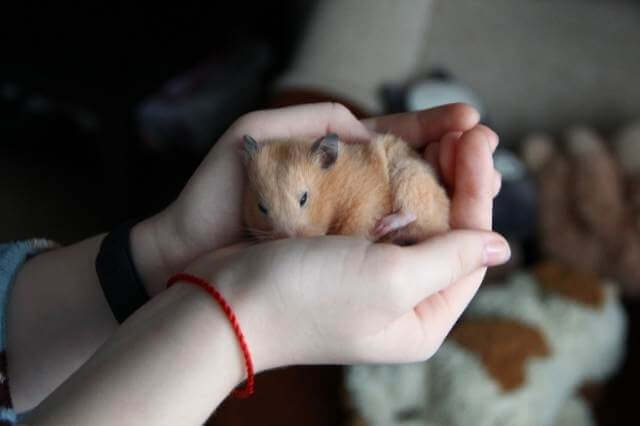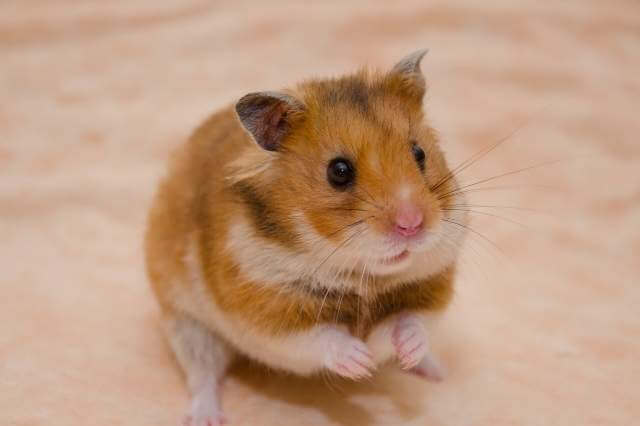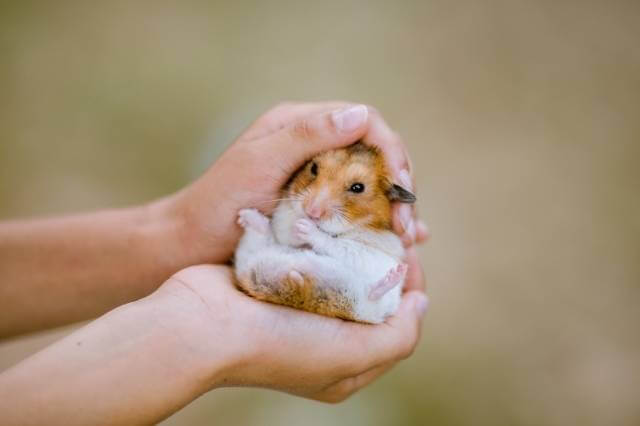What hours are hamsters most active so that you can start to appreciate your new furry friend?
You have visited a pet store and are enthusiastic about your new family member.
Well, I certainly did ask that question, as do many new hamster owners.
Table of Contents
What Times Are Hamsters Most Active?
Hamsters are active at night or in the early hours of the morning, and dawn and dusk are when they are most active.
Depending on their breed and individual preferences, each hamster will have a distinct preferred wake-up time and sleep routine.
Contrary to humans, who normally only sleep once per day, hamsters have polyphasic sleep-wake rhythms and typically sleep for 12 to 14 hours each day.
This indicates that they take many naps throughout the day, thus the 12 to 14 hours will be divided into smaller chunks during the day.

What Time Usually Do Hamsters Wake Up?
Hamsters are most active at dawn and dusk, as was previously said. Hamsters often sleep at night and hide during the day.
Because predators can’t see properly during these hours and their natural climate is too hot during the day, they acquired this behavior.
This indicates that, contrary to what many people believe, the majority of hamsters are crepuscular. Individual hamsters, however, will have various active hours; some will favor morning, while others will prefer dark.
Around dusk, when they would generally search for food in the wild, you are most likely to discover your pet awake.
Additionally, many hamsters kept in captivity exhibit increased nocturnal behavior since the environment is calm and dark after the owners go to bed.
Hamsters tend to be more active when it is quiet because they are inherently wary because they are prey animals.
How Long Do Hamsters Stay Awake?
Hamsters normally spend 8 to 14 hours awake each day or roughly half of the day. Hamsters often stay awake for 12 hours.
They often have a polyphasic sleep pattern, which is characterized by their dispersed sleep duration.
The sleep of animals with a polyphasic sleep cycle is divided into two or more phases.
Additionally, different breeds have various sleeping patterns. For instance, compared to other breeds, Syrian hamsters frequently sleep for longer periods of time.
Are Hamsters Nocturnal?
Hamsters do not sleep throughout the day as people do, as you have undoubtedly figured by now.
Being diurnal refers to our sleeping at night and waking up in the morning.
The ASPCA states that hamsters are nocturnal animals by nature. Hamsters are more crepuscular in the wild, which means they are more active between dawn and twilight.
This frequently occurs after a temperature decrease and when their normal predators are less active.
In the wild, hamsters spend daylight hours in their burrows, usually sleeping but also eating, burrowing, and setting up their nests.
Being above ground during the day is normally not very safe for wild hamsters, hence it is highly uncommon for them to do so.
Although the specific cause is unknown, it is hypothesized that the use of artificial lighting and warmth in our houses may be to blame for domestic hamsters’ tendency to fluctuate between being crepuscular and nocturnal.

The Sleep Cycle of the Hamster
The hamster is not an exclusively nocturnal creature.
Crepuscular would be a better way to define their sleeping patterns as they are most awake around dawn and twilight.
The circumstances they had to adapt to in their native habitats are the cause of such a distinct preference for the hours to be awake.
Because there was little daylight throughout the day and it is quite hot outside, nighttime is the best and safest time to be active.
Most hamsters kept as pets spend the majority of the day and sometimes even some of the night napping.
At dusk, they are most active. Due to the wide range of these animals’ nighttime activities, eight hours is only an estimate of how long your hamster could sleep.
Do Hamsters Follow My Sleep Pattern?
Breeds might vary in their ability to adapt.
One of the most common breeds of hamsters, Syrians also have a reputation for being quite strict creatures that dislike having other hamsters as “roommates” and who prefer set sleeping hours.
The majority of the time, dwarf hamsters are more adaptable and spend the day being active (and sleep more at night).
Although each animal is different, you shouldn’t anticipate your pet to change very much.
Consider a different species if having a pet that is active during the day and sleeps at night is really essential to your home.
Even an extremely adaptable hamster might be able to make some accommodations, but completely altering the animal’s regular sleep pattern is neither healthy nor practical for these creatures.
It is crucial to be aware of it, especially if you have children at home.
Your pet may start biting and eventually experience health issues if you or your child expect your hamster to get up and play when it wants to sleep.
Make sure the cage is located away from noise and activity and out of direct sunlight for your hamster’s comfort.

Why Do Hamsters Have a Polyphasic Sleep Cycle?
Hamsters inhabit the peripheries of sand dunes and deserts.
Many of these locations frequently experience severe daytime heat and harsh nighttime cold.
Hamsters consequently developed to stay awake throughout their preferred times of the day.
Predators are also always on the lookout for them. In the early morning and late at night, it is a little more difficult for predators to see them.
Since hamsters are naturally light sleepers, they awaken more frequently than non-prey animals.
This makes them sleep for a shorter period of time and keeps them safe by enabling them to be alert to changes in their surroundings.
They need to sleep more than once a day to receive the quantity of sleep they need since they sleep for shorter periods of time.
To account for this, they created a polyphasic sleep pattern.
FAQs
Why Does My Sleeping Hamster Keep Making Noises?
Hamsters snore as they sleep, much as people do.
Make a vet appointment right away if they’re wheezing or clicking because it might mean they’re unwell.
Does Your Hamster Cage Need to Be Covered at Night?
No, hamsters won’t fall asleep if their cage is covered because they are often alert at night.
To ensure that your hamster can sleep well and have access to oxygen throughout the day, we do advise covering the cage.
Can I Wake Up My Sleeping Hamster?
There are several articles online that describe how to make your hamster adhere to a timetable.
However, it is cruel and may have a negative impact on your pet’s health.
If at all feasible, try to coordinate your interactions with your pet’s natural timetable.
Frequently waking them up might stress them out.
Additionally, if you try to move or handle them when they are fast asleep, they may become startled and bite you.
Final Thoughts
The fact that hamsters are crepuscular—that is, awake at dawn and dusk—was mentioned in this article.
We also talked about how every hamster has its own routine and how you shouldn’t try to wake up your pet while they are dozing off.
We hope you found this post interesting. Check out some of the other entries on my site if you want to learn more about hamsters.

